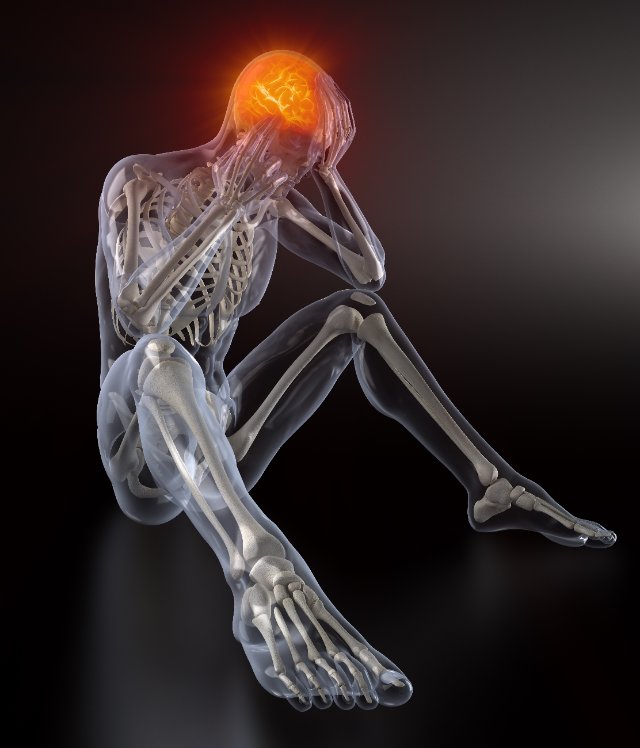Headaches can be very bothersome and debilitating for many. A headache can occur anywhere on your head and may present as a sharp pain, throbbing sensation, or dull ache. The pain can come on suddenly or develop gradually. The duration of the headache can vary as well. Sometimes headaches last from less than an hour to several days. Depending on your symptoms, your doctor may be able to help determine the cause of your headaches and figure out an appropriate treatment. Many headaches are self-limited and not caused by any serious illness. However, some headaches may be a result of a life-threatening condition requiring emergency medical attention. If you are experiencing a sudden, severe headache that feels like the worst headache of your life, you should see a doctor right away. Otherwise, you could try some home remedies and over-the-counter treatments for headaches.
Also see our blog about Ocular headaches – the headaches you can see
There are a few over-the-counter medications you can try to treat headaches. The main medicines include acetaminophen (Tylenol), ibuprofen (Advil, Motrin), naproxen (Aleve), aspirin, and Excedrin (acetaminophen, caffeine, and aspirin). However, these medications may not be right for everyone. For example, those people who take blood thinners, have heart disease, or have high blood pressure should avoid medications that contain NSAIDs (non-steroidal anti-inflammatory drugs) including naproxen, aspirin, and ibuprofen. Therefore, sometimes non-medication changes can be the best option to treat headaches at home.
There are several ideas out there for how to help headaches without medications and here we will discuss some of them. One way to alleviate headaches without medication is by changing your environment. If you can put yourself in a quiet, cool room, dim the lights, and avoid any noise it may help. Try avoiding strong odors like perfume, smoke, and/or cleaning products, as these may worsen headaches. Take care of yourself and your body to help reduce headaches. You can also try to exercise, even if you can only manage to do a simple walk. It is also a good idea to manage your stress. Try meditating, stretching, or doing yoga to help yourself relax. Taking care of your body also could include getting plenty of rest (at least 8 hours of sleep per night), wearing a mouth guard if you grind or clench your jaw in your sleep, quitting smoking, and/or removing tight hats or headbands from your head to alleviate pressure.
Certain dietary factors can worsen headaches. If you know you have a trigger for headaches, avoid that food or beverage. Some common food triggers for headaches include processed or aged foods (I.e., cheeses, meats, bacon, sausage, or hot dogs), artificial sweeteners, foods containing MSG/monosodium glutamate (ex. soy sauce), pickled foods, chocolate, citrus fruit, coffee, and nuts or beans. If you aren’t sure of any specific triggers, it may be beneficial to try an elimination diet to pinpoint specific triggers. Dehydration can lead to headaches, so be sure to consume plenty of water. Avoid alcohol, specifically red wine or beer from a tap, as it may contribute to headaches.
Finally, there are a few physical, non-medicated treatments you can try for headaches at home. One such treatment is using an ice pack or homemade ice pack applied to the forehead. Don’t leave ice on the for more than 10-15 minutes at a time and do not put ice directly on the skin (wrap ice pack in a towel). Some find a heating pad applied to the back of the head or neck to be helpful for headaches. Again, do not leave a heating pad on yourself for more than 20 minutes at a time. Massaging the scalp or neck can alleviate some headache symptoms as well.
These are just a few ideas for home remedies to treat headaches. It is always a good idea to consult with your healthcare provider before taking new medications or if you have symptoms that could indicate a more serious underlying condition. If you are experiencing a sudden, severe headache that feels like the worst headache of your life, you should see a doctor right away.
Resources:
1) https://americanmigrainefoundation.org/resource-library/otc-migraine-treatment/
2) https://www.mayoclinic.org/symptoms/headache/basics/definition/sym-20050800
3) https://familydoctor.org/condition/headaches/
Disclaimer: This blog is written for informational and educational purposes only. It is not intended to be a substitute for professional medical advice, diagnosis, or treatment. Always seek the advice of your physician or other qualified health provider with any questions you may have regarding a medical condition. Never disregard professional medical advice or delay in seeking it because of something you have read or seen online.












